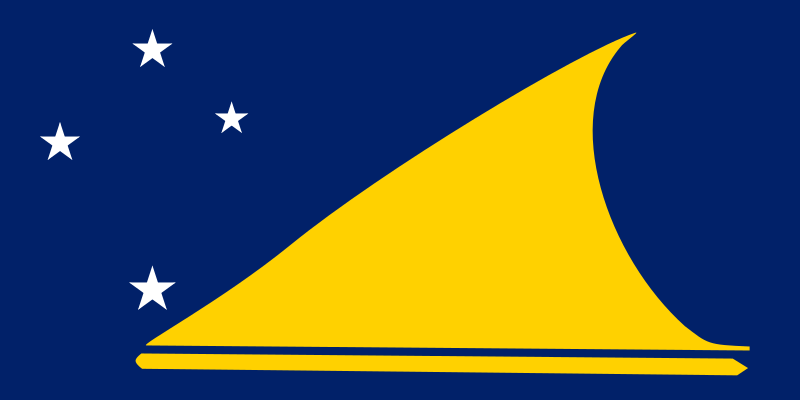 Tokelau (pronounced /ˈtoʊkəlaʊ/) is a territory of New Zealand that consists of three tropical coral atolls with a combined land area of 10 km2 and a population of approximately 1,400 in the South Pacific Ocean. The atolls lie north of the Samoas, east of Tuvalu, south of the Phoenix Islands, southwest of the more distant Line Islands (both islands groups belonging to Kiribati) and northwest of the Cook Islands.
Tokelau (pronounced /ˈtoʊkəlaʊ/) is a territory of New Zealand that consists of three tropical coral atolls with a combined land area of 10 km2 and a population of approximately 1,400 in the South Pacific Ocean. The atolls lie north of the Samoas, east of Tuvalu, south of the Phoenix Islands, southwest of the more distant Line Islands (both islands groups belonging to Kiribati) and northwest of the Cook Islands.
The United Nations General Assembly designated Tokelau a Non-Self-Governing Territory. Until 1976 the official name was Tokelau Islands. Tokelau is sometimes referred to by Westerners by the older, colonial name of The Union Islands.
Archaeological evidence indicates that the atolls of Tokelau — Atafu, Nukunonu, and Fakaofo — were settled about 1,000 years ago, probably by voyages from Samoa, the Cook Islands and Tuvalu.
Oral history traces local traditions and genealogies back several hundred years. Inhabitants followed Polynesian mythology with the local god Tui Tokelau; and developed forms of music and art. The three atolls functioned largely independently while maintaining social and linguistic cohesion. Tokelauan society was governed by chiefly clans, and there were occasional inter-atoll skirmishes and wars as well as inter-marriage. Fakaofo, the “chiefly island,” held some dominance over Atafu and Nukunonu. Life on the atolls was subsistence-based, with reliance on fish and coconut.
According to the US Central Intelligence Agency’s list of countries by GDP (PPP) Tokelau has the smallest economy of any country in the world. Tokelau has an annual purchasing power of about US$1,000 (€674) per capita. The government is almost entirely dependent on subsidies from New Zealand. It has annual revenues of less than US$500,000 (€336,995) against expenditures of some US$2.8 million (€1.9 million). The deficit is made up by aid from New Zealand.
Tokelau annually exports around US$100,000 (€67,400) of stamps, copra and woven and carved handicrafts and imports over US$300,000 (€202,197) of foodstuffs, building materials, and fuel to, and from, New Zealand. New Zealand also pays directly for the cost of medical and education services. Local industries include small-scale enterprises for copra production, wood work, plaited craft goods, stamps, coins, and fishing. Agriculture and livestock produces coconuts, copra, breadfruit, papayas, bananas, pigs, poultry and few goats. A large number of Tokelauans live in New Zealand and support their families in Tokelau through remittances.

Notes from Wikipedia








